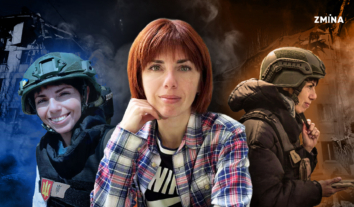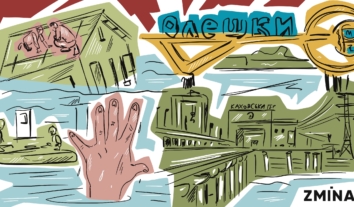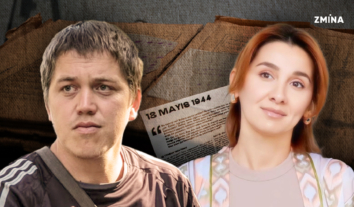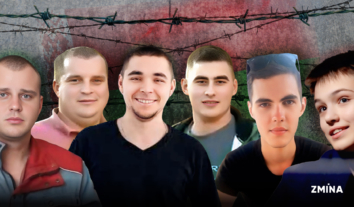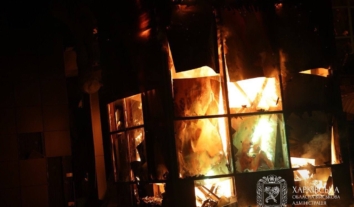How the Ukrainian justice system deals with international crimes
As of December 2023, the Office of the Prosecutor General had already registered more than 120,000 international crimes committed during Russia’s full-scale invasion alone.
Such violations are recorded by government agencies and Ukrainian non-governmental organizations, international observers, investigators, and human rights defenders. All of them emphasize that the crimes known today are only the tip of the iceberg, as it is difficult to assess the situation in the occupied territories of Ukraine.
National law enforcement agencies will investigate most of these crimes, which poses an unprecedented challenge to the country’s legal system.
The experience of the previous occupation of Crimea and parts of the Donetsk and Luhansk regions since 2014 should have prepared the Ukrainian legal and political system to deal with international crimes. However, according to human rights experts, this issue was hardly addressed before the full-scale invasion.
ZMINA analyzed how Ukraine is currently dealing with Russian crimes and what else needs to be done to ensure real justice.
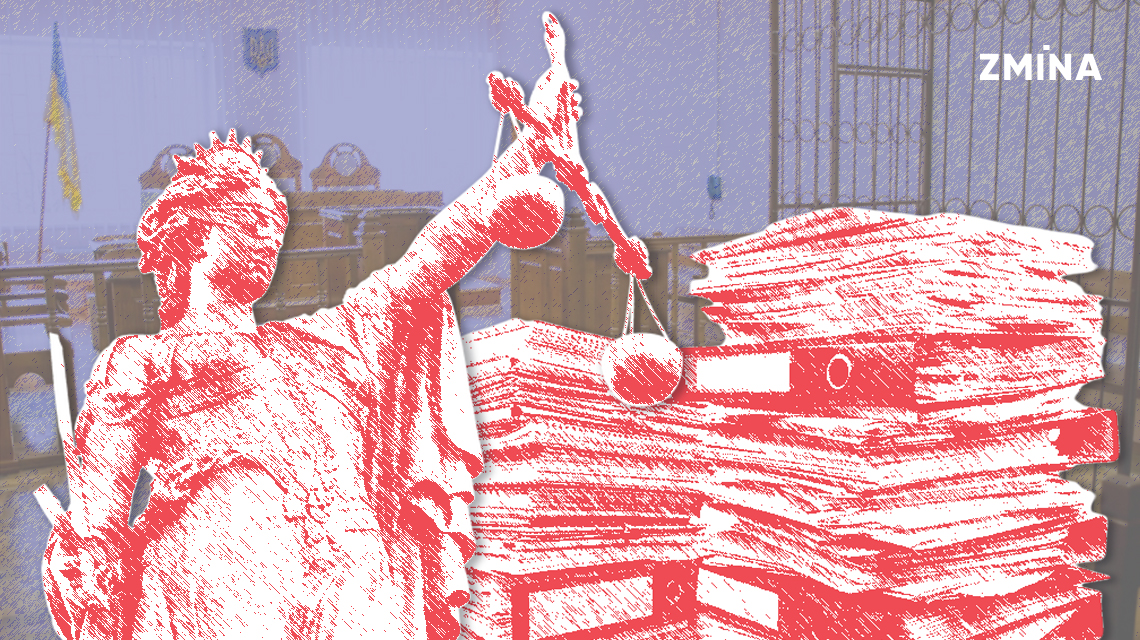
Building from scratch
After the occupation of Crimea and the beginning of the armed conflict in the Donetsk and Luhansk regions in 2014, law enforcement and judicial authorities from these regions moved to the territories controlled by Ukraine.
They were faced with an unprecedented task – not only to work without access to the occupied areas and with limited personnel but also to be the first in the country to investigate international crimes committed in the context of hostilities. Over the years, these tasks have been solved too slowly.
For example, when the leadership of the Crimean Prosecutor’s Office changed in 2016, the agency had to be created almost from scratch, said the current head of the peninsula’s Prosecutor’s office, Ihor Ponochovny, during a discussion at the international conference “Global Crimea. Understanding Ukraine through the South.”
“For several years, the Crimean Prosecutor’s office performed ceremonial functions. It just existed,” he said.
According to Ponochovny, he and his colleagues faced a critical shortage of prosecutors and law enforcement officers who understood international humanitarian law and had experience investigating relevant crimes.
In addition, until 2022, the peninsula’s law enforcement agencies often did not consider the occupation in their work, said the head of the Prosecutor’s Office of the Autonomous Republic of Crimea.
“The murder of a political activist could be qualified as an ordinary domestic murder, not a war crime. Or the deportation of Crimean Tatars outside the peninsula could be considered as an intentional deprivation of liberty,” Ponochovny explained.
Lawyers note that such problems with the qualification of crimes were quite common before the full-scale invasion.
For example, from 2014 to 2022, the Prosecutor’s Office of Ukraine registered only 439 crimes under Article 438, Violation of the Laws and Customs of War, of the Criminal Code of Ukraine. At the same time, since the beginning of the full-scale invasion in February 2022, more than 108,000 such violations have been recorded.
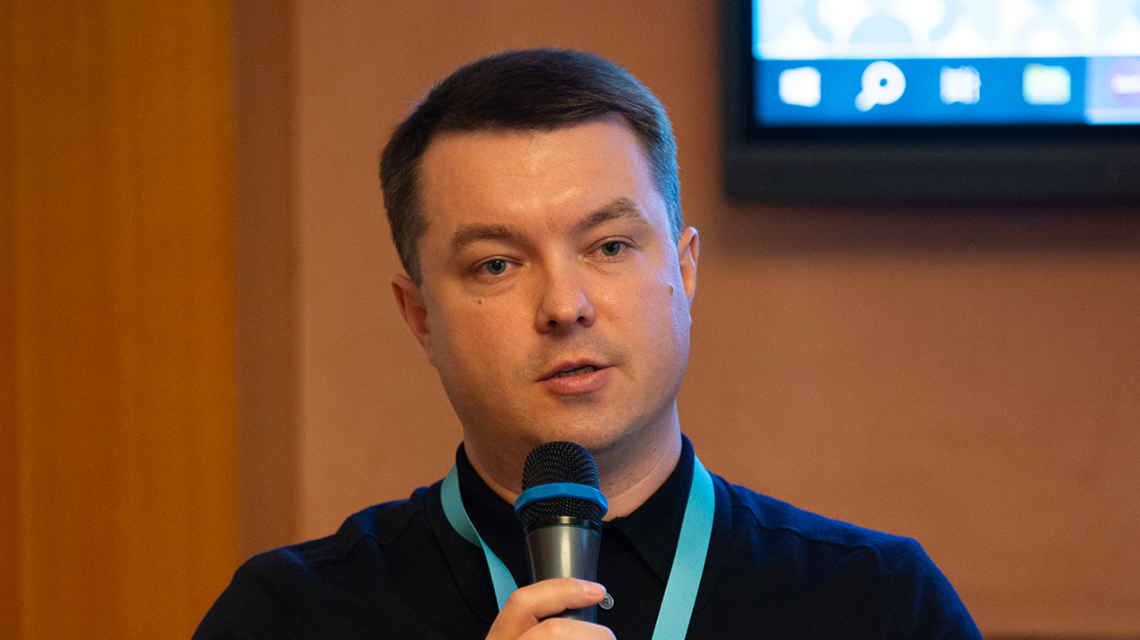 Igor Ponochovnyi, Head of the Prosecutor’s Office of the Autonomous Republic of Crimea and Sevastopol City, at the conference “Global Crimea. Understanding Ukraine through the South.”
Igor Ponochovnyi, Head of the Prosecutor’s Office of the Autonomous Republic of Crimea and Sevastopol City, at the conference “Global Crimea. Understanding Ukraine through the South.”Planning strategically
Law enforcement, lawyers, and human rights activists agree that Ukraine is facing an unprecedented number of crimes related to the armed conflict with the Russian Federation.
“It was impossible to be prepared for such a challenge,” says Nadiya Volkova, head of the Ukrainian Legal Advisory Group.
However, in almost two years, there have been no effective changes in Ukraine’s law enforcement system.
In particular, there are cases when pre-trial investigation bodies do not take any action for months after the opening of war crime proceedings.
This inaction is explained, in particular, by the heavy workload and lack of physical ability to work on violations in the occupied territories of Ukraine (such as parts of the Kherson, Zaporizhzhia, Donetsk, Luhansk, and Kharkiv regions) or the contact line.
At the same time, lawyers from civil society emphasize that even under such circumstances, specific investigative actions are possible. These include interviewing victims, for example, searching for witnesses and digital materials relevant to the case, as well as monitoring social networks or media.
Volkova notes that at all levels, Ukraine lacks a strategic understanding of how to deal with international crimes in general.
“We see only what is in front of us and do not look at the bigger picture,” the lawyer says.
Thus, according to her, not all violations committed by Russian forces or armed groups under their control are separate crimes. These can be different episodes of one crime, including an ongoing one. Therefore, the opening of proceedings should be preceded by a thorough analysis.
“Without this approach, I think we are wasting time, effort, and resources,” Volkova claims.
In addition, the lawyer adds, the law enforcement system still focuses on quantitative indicators in its work. This, in turn, leads to a rush in the investigation and, as a result, to mistakes.
A significant problem underlying many challenges is the unpreparedness of the legislative and political systems for the realities of wartime. In particular, the lawyer emphasizes that many existing norms do not meet the standards of proper investigation and prosecution of the most severe crimes in the context of the international armed conflict.
Thus, Ukraine still has no rules for the protection of witnesses or victims of war crimes despite the fact the country assumed this obligation after changes in the legislation on cooperation with the International Criminal Court.
“If Ukraine, for example, fails to protect witnesses or victims in the ICC trials, then this is Ukraine’s responsibility first and foremost,” Volkova said.
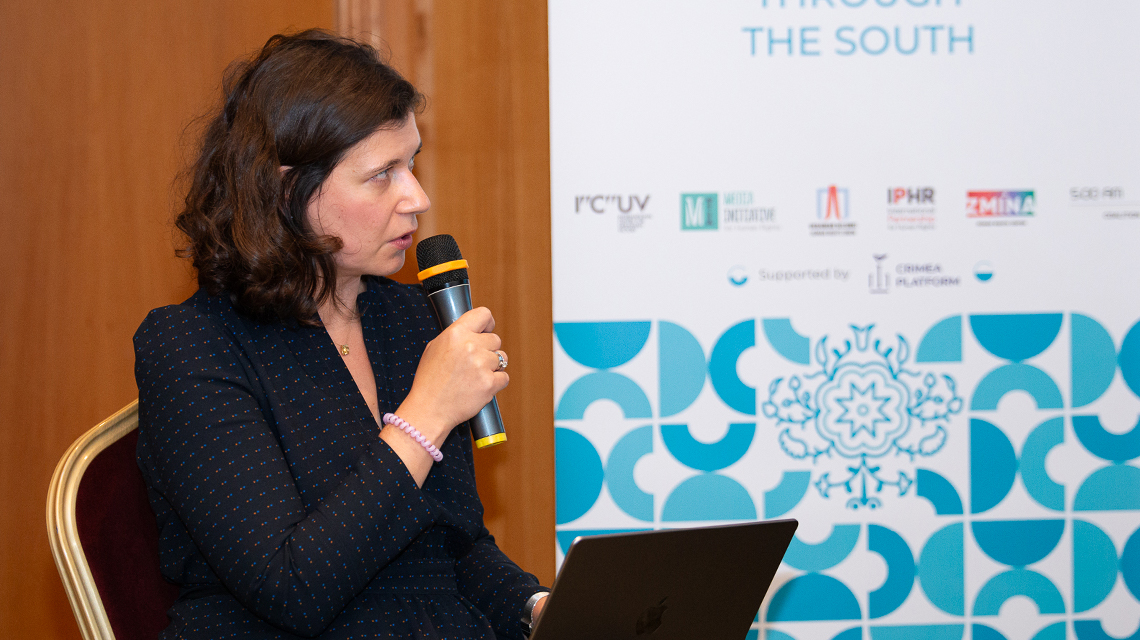 Nadiya Volkova, Director of the Ukrainian Legal Advisory Group and representative of the Coalition “Ukraine. 5 AM,” which documents war crimes and crimes against humanity committed during the Russian invasion of Ukraine.
Nadiya Volkova, Director of the Ukrainian Legal Advisory Group and representative of the Coalition “Ukraine. 5 AM,” which documents war crimes and crimes against humanity committed during the Russian invasion of Ukraine.Lawyers and human rights activists also note a problem presenting international crimes in the current Criminal Code of Ukraine.
In 2021, the Verkhovna Rada of Ukraine, the national legislature, supported a bill harmonizing national criminal law with international humanitarian law. It provided, among other things, clarification of the definitions of crimes of aggression and genocide, expanded the article on war crimes to include a list of violations, and regulated the principle of universal jurisdiction. However, Volodymyr Zelenskyy, the President of Ukraine, never signed the law.
Instead, in 2022, the government proposed an alternative draft law that raised many questions from the civil society community. Parliamentary committees are still considering it.
Respecting the right to a fair trial
The imperfection of legislation on international crimes also affects the judiciary’s work in Ukraine, experts of the Ukrainian Bar Association noted during the presentation of their project “Monitoring of Court Proceedings in War Crimes Cases.”
Lawyers note that most of the cases related to the armed conflict are currently opened under Article 438, On Violation of the Laws and Customs of War, of the Criminal Code of Ukraine.
At the same time, this provision does not contain a complete list of actions that fall under the war crimes category. Instead, the article refers to other international documents adopted by Ukraine.
According to lawyers, it creates problems for prosecutors and judges in determining the type of crime and the reasoning behind this choice.
In addition, the vagueness of Article 438 leads to an overburdening of court decisions with references to international norms, said Oksana Kvasha of the Ukrainian Bar Association. Thus, the verdicts contain references to laws and norms that are unimportant to the case and cannot form the basis of war crimes charges.
“Sometimes it seems that this list of justifications goes from one verdict to another,” the lawyer added.
Experts also have comments on procedural rules. This applies, in particular, to the provisions on summoning and notifying court participants. On the one hand, the Ukrainian authorities comply with all national norms – they publish announcements on the court’s website.
On the other hand, experts emphasize that these provisions do not fully comply with Article 6 of the Convention on Human Rights, which enshrines the right to a fair trial. For example, most state-owned Ukrainian websites are blocked in Russia, so suspects will not always be physically able to find out about a court summons.
Instead, courts could send notifications by email, messenger, social media, or phone, for example, said Hennadii Zelenov, head of the Department of Analytical Assistance to the Cassation Courts and the Grand Chamber of the Supreme Court of Ukraine.
“The prosecution should look for ways to inform the defendants about the criminal proceedings against them,” he emphasized.
Observers also note the inactivity of defense lawyers in court hearings and cases where lawyers missed hearings. For example, from July to October 2023, most hearings were postponed due to the absence of the defense in Kharkiv and Kharkiv region.
Despite the emotional complexity of such processes, Ukrainian law enforcement officers and judges are obliged to comply with the provisions of Article 6 of the Human Rights Convention, emphasizes Natalia Okhotnikova, legal advisor to ZMINA.
“Respect for rights distinguishes us from barbaric Russia, where it has become a fiction and where a trial is another mechanism of pressure on a person by a totalitarian machine,” the human rights defender adds.
In addition, ensuring a fair trial is strategically crucial for Ukraine: the better the rights of Russians in Ukrainian courts are respected, the less likely they are to file applications against Ukraine with the European Court of Human Rights in the future.
According to the lawyer, if the international community finds systematic and complex violations in national procedures, some investigations into crimes in Ukraine may be closed altogether. The expert adds that evidence and testimony obtained with violations will have no value in international mechanisms.
“Compliance with all procedures regarding the Russians, including ensuring the right to defense, is the duty of the legal community. It is difficult to bear, but it will help to bring the cases to an end and prevent Ukraine’s image in the international field from being damaged,” emphasized ZMINA’s legal advisor.
Learning from mistakes
Volkova emphasizes that mistakes on the way to justice can become lessons for Ukrainian law enforcement and judicial systems in the future. However, evidence, witnesses, or victims could be lost.
“This has already happened in other situations, in other armed conflicts,” the lawyer adds.
Insufficient legislative capacity and political problems have been the reasons for the delay of justice for many countries, said Jürgen Schurr, head of the Libyan organization “Lawyers for Justice” during a discussion at the international conference “Global Crimea. Understanding Ukraine through the South.”
For example, war crimes in Afghanistan since 2003 have been documented only by NGOs, said Ehsan Kaane, national coordinator of the International Center for Transitional Justice in Afghanistan. This was often done together with foreign experts, including the United Nations. However, the human rights activist noted that the ICC could not accept most of these materials because they were not collected according to the court’s standards.
“Too much time has passed. So I’m afraid impunity for those crimes will continue,” Ehsan added.
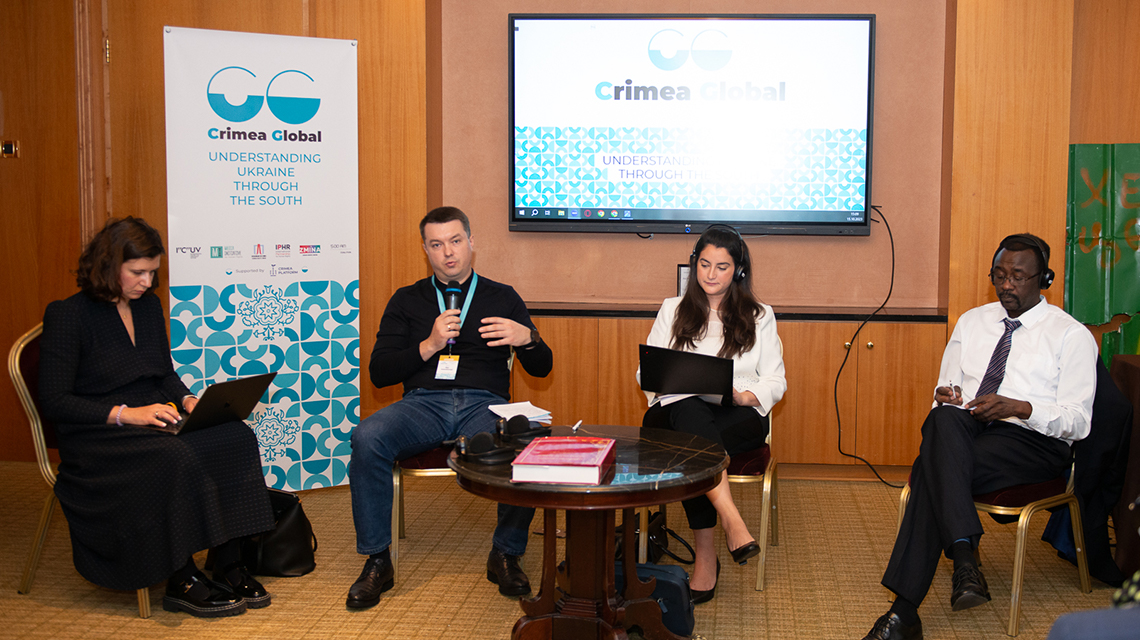 Participants of the discussion “Is there a real prospect of justice in Ukraine? What does international experience say about it?” at the conference in Kyiv, October 2023
Participants of the discussion “Is there a real prospect of justice in Ukraine? What does international experience say about it?” at the conference in Kyiv, October 2023Volkova says the experience of other countries in the search for justice can help Ukraine successfully combine international standards with the national context. The lawyer and her colleagues regularly involve partners from other countries.
“We analyze, provide context, and formulate a clear request to our foreign colleagues,” she adds.
This helps to adapt Ukrainian legislation to international standards faster and more accurately.
In addition, partners are more likely to meet and offer assistance when they see their Ukrainian colleagues’ willingness to work on international crimes and look for the perpetrators, Ponochovny said.
“We cannot be just a Crimean prosecutor’s office that cannot do anything because it does not have access to the territories,” the head of the department emphasized. “We must do everything in our power to be as effective as possible in these conditions.”

